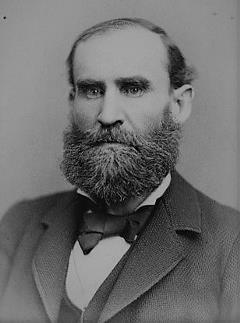William Willard Davis served as the 10th attorney

general of the State of Kansas. He was born January 26, 1837, in Madison County, Kentucky. Davis attended the University of Missouri. He returned to Kentucky to study law at Lexington Law School which was then part of Transylvania University. After graduation, Davis was admitted to practice law and setup a practice in Lexington. He also served as Fayette County attorney. When the war began, he was commissioned into the Union Army as a lieutenant in the 31st Kentucky Volunteer Infantry, but his military career, after fighting in the battles of Richmond, Kentucky and Perryville, was brief due to his health. On March 14, 1863, Davis was appointed by President Abraham Lincoln as collector of internal revenues in the Second Collection District of Kentucky. He held the position until September 1, 1866, when he was dismissed for failure to sign a pledge of support for certain policies of President Andrew Johnson. Davis resumed his law career and advocated for civil rights for freed slaves. Davis made a significant speech which had impact in the national debate for voting rights of freedmen during a Fourth of July Celebration in Lexington before an audience largely made up of African-Americans. He purchased land in an area of Lexington named Davis Bottom, and sold much of the land to African-American buyers. In 1870, Davis moved to Neosho Falls, Kansas, and became the attorney for the Missouri, Kansas and Texas Railway Company. The following year he settled in Parsons, where he served as the town's first mayor and as attorney for Labette County. In 1876, Davis was elected attorney general and served for two terms. In 1881, he returned to his private law practice. After suffering from poor health much of his life, Davis died on December 6, 1885, in Topeka.
Photo and biography courtesy of Kansas Historical Society.